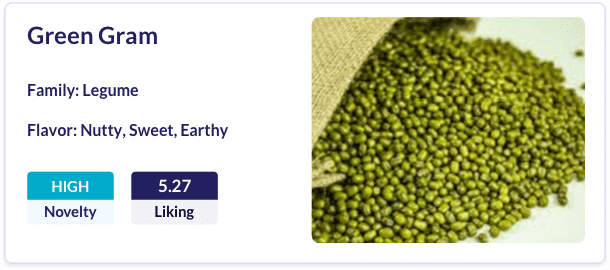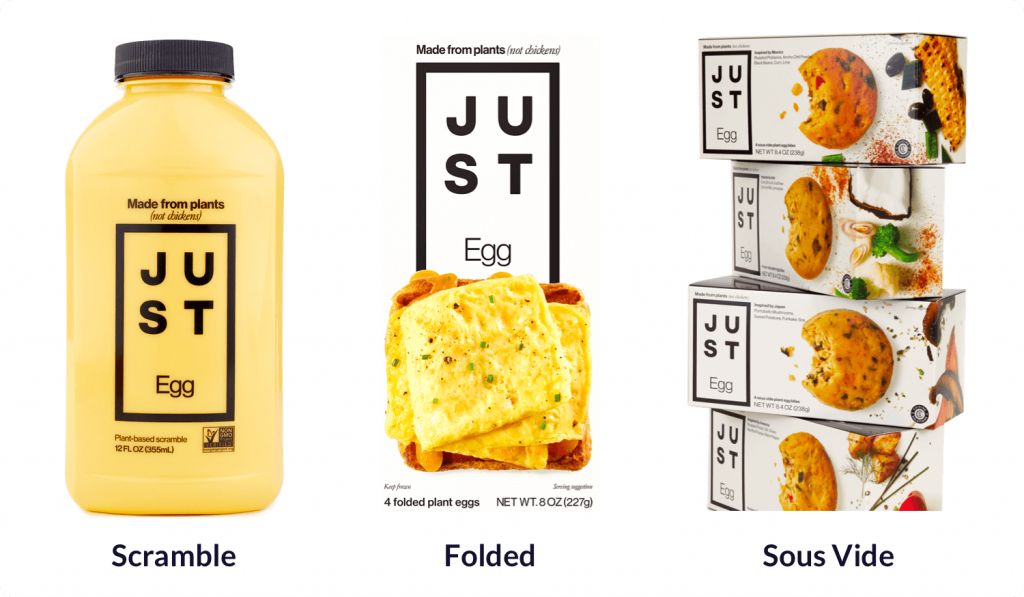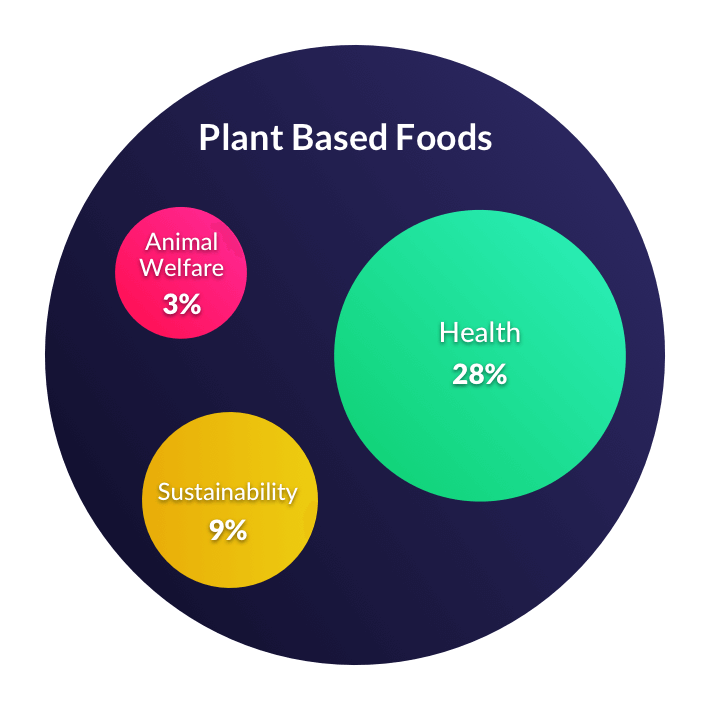
The world continues on its quest for plant-based perfection, and eggs are the latest target. Okay, plant-based eggs substitutes have been available for a while now, mostly made with ingredients like aquafaba and flaxseed. But more recently, companies have been focusing on creating vegan eggs that behave a lot like regular eggs, with the primary ingredients being lentils – mung bean or green gram in particular.
Mung bean ingredient details

Challenges for an emerging sector: Plant-based eggs
These products started as liquid eggs, but are becoming more sophisticated. In fact, over the last year, business interest in this space grew by 146%.
Interest in plant-based eggs

Eat Just, the California-based food tech company that is the brains behind vegan egg product JUST Egg, announced last week that it had sold the equivalent of 100 million eggs since its launch in 2018. The company also received funding of US$200 million led by Qatar’s sovereign wealth fund, is launching new formats for a number of uses, and is expanding into new regions. Eat Just’s base is mung bean, with turmeric for the color.
Eat Just’s plant-based egg portfolio

Singapore-based Float Foods is working on an egg substitute, also made from mung bean, but the company is looking to recreate the egg with the yolk and whites as distinct elements. This will allow for prep styles like sunny side up, soft boiled, or others where the two components need to be seen as separate entities. OnlyEg is made with different legume-based proteins for the whites and the yolk to mimic chicken eggs. This product is expected to hit markets in 2022.
OnlyEg’s product will have the yolk and white as separate components

In India, Evo Foods has a liquid egg made from vegetable protein extracted and isolated from a blend of lentils – mung bean, chickpeas, and peas. The broth is fermented and then injected with texture agents.
Healthy and safe
As with all plant-based foods, environmental sustainability and animal welfare are drivers for these products from a company perspective, but so is food safety. Float Foods, for example, specifically talks about their product being a safer alternative to animal foods due to new diseases spreading from animals as well as growing incidences of avian flu and salmonellosis. The company is also looking at creating alternatives to different types of eggs.
But for consumers, health remains the key driver for the plant-based trend, and the same is true for plant-based eggs as well. Our data showed that there was three times greater interest in health compared to sustainability in reference to plant-based foods among consumers. Consumer interest in animal welfare in this space was significantly lower.
Relative interest in drivers for plant-based foods among consumers

From a health angle, one the common claims for vegan egg products is their cholesterol-free nature due to the ingredients used. Legumes are low in cholesterol and their fiber content can even help lower levels of bad cholesterol. This makes vegan eggs an ideal product for consumers with high cholesterol levels or looking to lower these levels but still don’t want to give up eggs.
A downside of vegan eggs is that they do not have all the nutrients of their animal-based counterparts, but this can be dealt with by adding these elements into the mix, which is what Evo has done. The company has incorporated into the liquid Vitamin B12, Vitamin D3, and branched-chain amino acids (BCAA).
In the coming year, we expect to see a lot of growth in this space in terms of the base ingredients used as well as processing technologies. With more meat alternatives being cell cultured or lab-grown, an interesting question is if the same would be possible for eggs. I’m also curious if these vegan eggs would be able to replace regular eggs in other applications, like cakes and baking.
Meat boom without the animals
The animal-free revolution as a whole continues to expand into newer territory thanks to new technology and formulation innovations. Products being launched are also becoming more sophisticated in terms of replicating the OG food. Business interest in meat analogs grew by 8% over the last year and has more than tripled (217%) since 2018.
Business interest in the meat-free space

Startup Orbillion Bio is planning to focus on high-end or heritage meats grown in a lab, including products like elk, lamb, Wagyu beef, expected to be in market in 2023. There has even been talk about lab-grown game meat and maybe even more exotic meats, in tandem with murmurs on the ethics of it all. We’re in for some interesting debates in the coming years, but for now I just want an egg – a chocolate Easter egg…



Leave a Reply